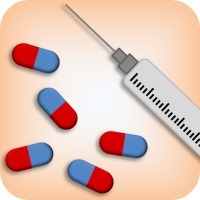
Medicines prescribed by doctors, nurses or pharmacists can potentially have a negative effect on a woman’s fertility. Generally, these effects disappear quite quickly after stopping taking the drugs, but sometimes the effects can linger.
IMPORTANT: DO NOT stop any medicine prescribed to you by your doctor without consulting with them first. If you are planning to get pregnant and are using medicines I have described here, speak to your doctor who can give you advice about changing the dosage or switching to a different medication which is not harmful to your fertility.
Common Prescribed Medications That Can Be Detrimental to Female Fertility
This is by no means an exhaustive list as there are hundreds of different medications out there, but the more common medications which can affect female fertility include:
NSAID Painkillers
NSAID (Non-Steroidal Anti-Inflammatory Drugs) painkillers are used to treat pain, inflammation and high temperatures. These medications include ibuprofen (Nurofen) and aspirin. They usually only affect fertility when used regularly over a long period of time and at a high dose.
Steroids
Also known as “corticosteroids”, steroids are a synthetic version of hormones normally made by the adrenal glands. They are most often used to treat inflammation and suppress the immune system. A commonly used example of these is prednisolone. They usually only affect fertility when used regularly over a long period of time and at a high dose.
Thyroid Medications
Abnormal thyroid function can decrease your chances of getting pregnant and increase your risk of miscarriage once you are. If you are on thyroid medication, for example levothyroxine or carbimazole, and wish to get pregnant, you should have your dose reviewed to ensure that treatment maintains the thyroid hormone levels within the normal range. If you have thyroid problems, you may also want to check out the section: Thyroid Problems and Fertility.
Antidepressants
Antidepressants are not only used to treat depression, but can also be used to treat OCD, PTSD and anxiety disorders. Antidepressants medications can reduce the libido, therefore making you less likely to want to have sex. Examples of antidepressants that can affect libido are Prozac and sertraline
Anti-Epileptics
Anti-Epileptics (for example sodium valproate) are used to treat the seizures of epilepsy. These drugs can interfere with normal ovulation and you should speak with your doctor if you are on them and are planning to get pregnant.
Antipsychotics
Also known as neuroleptics, antipsychotics are a class of psychiatric medicine used to treat psychosis (most commonly schizophrenia and bipolar disorder). They can interfere with normal hormone regulation by the brain and therefore cause missed periods and a failure of ovulation. Examples of these are risperidone and amisulpiride.
Immunosuppressants
These drugs suppress the body’s immune system and are usually given to prevent the body from rejecting a transplanted organ (if you didn’t take them, your body’s immune system would see a part of someone else’s body in you as being a foreign invader and try to destroy it – even if the transplant was keeping you alive). Immunosuppressants, such as cyclophosphamide, can prevent ovulation and stop your periods.
Diuretics
Diuretics are medicines that reduce the amount of water you have in your body and are commonly used to treat reduce water retention or oedema. The problem with taking them if you wish to get pregnant is that they can dry out your cervical mucus (cervical mucus provides sperm with nutrients and helps them move towards the egg). There are many types of diuretics, but a commonly prescribed example is spironolactone.
Cancer Medication
Cancer medication, for example chemotherapy and radiotherapy, can have a variety of effects on female fertility. If you have or have had cancer, you may also want to check out the section: Cancer’s Impact on Female Fertility.
Contraception
Not unsurprisingly, contraceptive medicines significantly reduce female fertility and their effects can linger for a while after you have come off the contraception. For example, it can take up to three months before a woman is fertile again after taking the pill. If you have been using contraception, check the leaflet to see if it takes time for your fertility to return.
Taking Medication While Pregnant
Some medications do not reduce your chances of getting pregnant, but they can harm the developing foetus and they can taint the milk you are producing when you start breastfeeding. If you are taking any prescribed medications on a regular basis and plan to get pregnant, book an appointment to review them with your doctor to make sure they will not affect your baby in any way. If they do, your doctor can advise you of alternatives that don’t affect your child.
Links to Popular Related Pages






